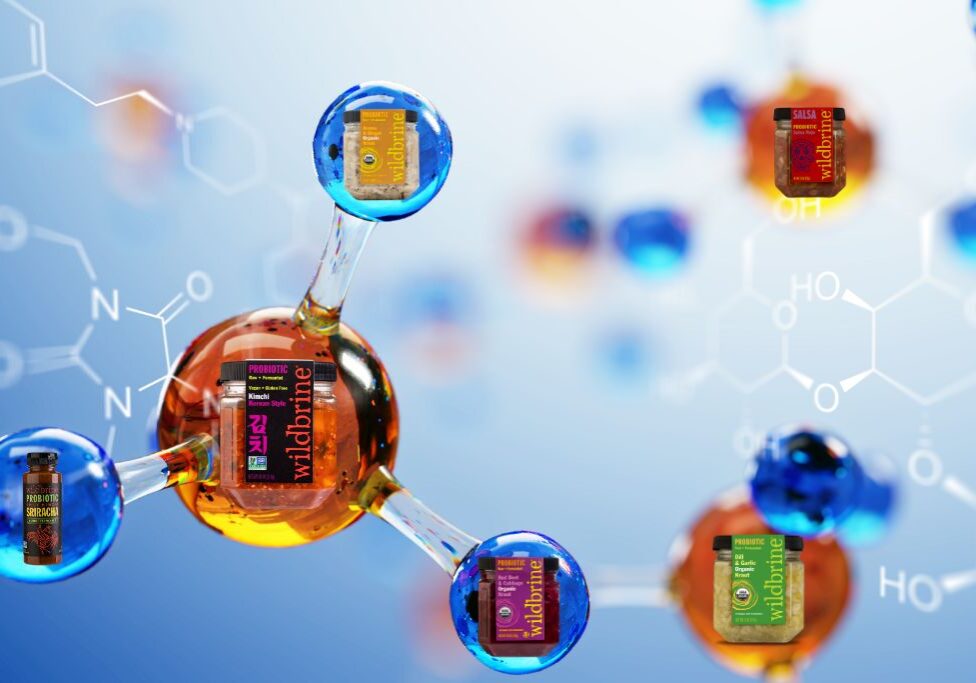We know about prebiotics—those foods that feed our gut bacteria. And we know about probiotics—the microorganisms in our fermented foods that contribute so much to our good health. But now people are beginning to talk about postbiotics. What are postbiotics?
Postbiotics are the biologically-active molecules produced by our gut bacteria as they live and work within us. These molecules are the primary way that our gut interacts with us, their human hosts.
The postbiotic molecules are produced in three primary ways. First, they are formed as the gut bacteria metabolize the food we eat. Second, gut bacteria modify substances produced by the human body, such as bile acids. Third, the microbes in our gut bacteria spontaneously produce some of these molecules themselves.
Bioactive molecules from our microbiome act like hormones, signaling our bodies to take health-promoting actions, such as the maturation of our immune system. Their signals also support immune homeostasis (the stable and balanced condition necessary for our survival). They help regulate our bodies’ energy metabolism and are crucially involved in the maintenance of mucus integrity in our gastrointestinal tracts. Mucus forms a protective barrier along our intestinal tract, and if it loses its integrity, it can result in severe digestive problems such as inflammatory bowel disease.
Dr. Martin J. Blaser, Director of the New York University Human Microbiome Program, summed it up this way: “It’s reasonable to propose that the composition of the microbiome and its activities are involved in most, if not all, of the biological processes that constitute human health and disease.”
Postbiotics and Health
The molecules we’re talking about are the postbiotics that are critically important for our health. It’s as if the microbiome, comprised of trillions of microorganisms that live in our intestines, is most happy and content when we are healthy, and so has learned over many millennia to send our bodies chemical messages that promote our health and well-being, including the “happy” chemicals like serotonin. Our gut bacteria are responsible for the production of 90 percent of this mood enhancer.
They also contribute to what makes each person distinctive. Scientists have found that there are no separate races of humans—we’re all Homo sapiens sapiens—and our DNA shows that we are 99.9 percent the same genetically. But the genes found in the gut microbiome outnumber our human genes 150 to 1, and can influence gene expression and biological functions, making each human being unique. The microbiome has more biodiversity than the Amazon rain forest.
Through its production of biologically-active molecules that signal the human body to perform health-promoting activities, the microbiome functions like an organ. Scientists are hesitant to call it an organ because it’s comprised of species not of human origin. But when deciding what to feed the microbiome, it functions like a super organ that plays key roles in our nervous system, immune system, and endocrine system.
To encourage the microbial production of postbiotics, start with plenty of prebiotics, and the fermented, probiotic-rich foods that wildbrine serves up. The fermentation enhances their flavor, enhances their nutrient value, and creates a bloom of the good microbes that will replenish and strengthen our microbiome. The vegetables in our kimchi and sauerkraut varieties also contain lots of soluble fiber that our gut bacteria thrive on.
In fact, when enjoying wildbrine fermented foods, you have the prebiotics and the probiotics covered. The inhabitants of our microbiome will take care of the postbiotics.
About the Author: Sonoma County resident Jeff Cox is the author of 24 books, including The Essential Book of Fermentation (Avery, 2013)
